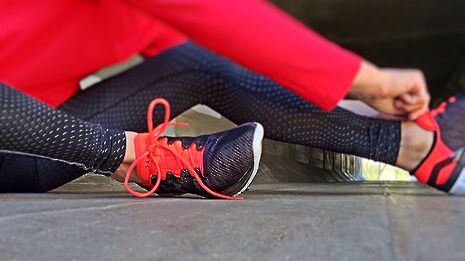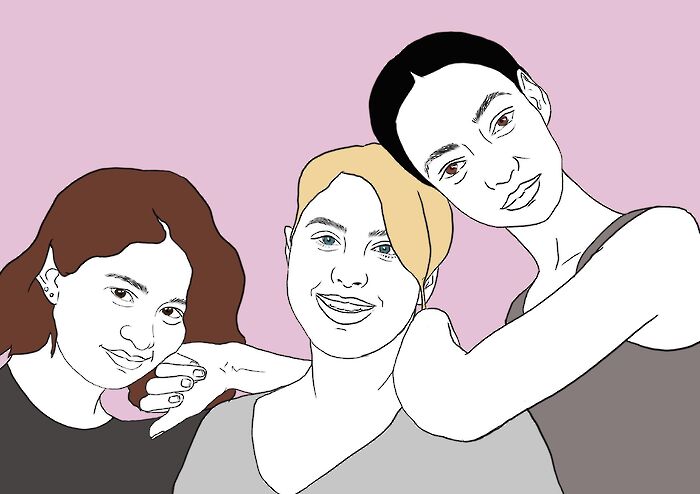Exercise, anxiety and me
Eve Hodgson discusses how exercise helps her tackler her anxiety

c/n: discussion of weight loss and anxiety
I used to run, and I used to hate it. It was too hard to breathe consistently and too cold to feel as if I’d worked up a sweat. I felt was really bad at it – forty-five minutes in a hilly area was not a realistic start-point when I’d basically only exercised in PE and netball practice before. I’d be so tired and so unsatisfied that I’d lie down and put biscuits in me as a reward as soon as I got home, thus undoing all my hard (half-)work.
So, I stopped. I lost weight in the summer after my GCSEs through no work or fault of my own, and kept losing weight throughout sixth form. I never had any need to exercise, mostly because I was frequently too nervous to eat anything significant. I was at my absolute slimmest and absolute most anxious when I first came to Cambridge.
"It is invigorating, and it makes you feel strong"
Anxiousness was at one time the reason I was able to get through the day on unhealthily small amounts of food, but has now become the reason I can exercise. I go to the gym every day.
My anxiety – and I can only speak for mine – is a kind of nervous energy. Panic attacks were always a distinctly physical thing. They felt muscular and twitchy and I’d often jitter. The sensation of motion – rolling a glass between my palms, physically getting up and pacing – could often ease, if not end, a panic attack. I haven’t had an extreme panic attack in a long time, but as third year wears on, anxiety is naturally setting in, and sometimes more irrationally escalating.
Going to the gym at a more or less fixed time every day is my way of nipping a panic attack in the bud, because, soon, there will be a point where I’m fine again – or, if not fine, at least occupied. The gap between my current state of panic and the point where it will end gets smaller and smaller the more frequently I work out. A schedule I would have once thought of as unrealistic and impossible has become necessary for my wellbeing.
It distracts me from work for a fixed amount of time, so I am (in theory) sharper and more focused when I come back to it. I’m eating better – it feels like a cliché, but my body feels cleaner. I am sleeping better: I don’t really drink caffeine anymore and I’m physically exhausted when I get into bed.Mostly, I am too busy and too tired to be anxious or sad. Mine tends to hit when I have empty hours. My brain can spiral. It used to keep me up for hours most nights during my worst periods.
It took me a long time to figure out what kind of exercise works for me. For most of my time at uni, I’ve just played college netball once or twice a week. Last term, I tried to go back to running – going in the morning for an extremely short run round the river every other day. It was too easy to cop out, especially as it never felt like I was missing much by skipping it anyway.
The gym however is indoors. Plus it’s free (a particular student perk I will miss when I graduate), and there’s a huge variety of stuff to do. If you do a humanities subject you can afford to go when it’s empty in the middle of the day, especially useful if you’re self-conscious starting out. You have the space and time and equipment to work out how you like moving best, and the absolute luxury of being able to switch it up whenever you get bored.
For the last two weeks, I’ve split workouts between cross-trainers, rowing machines, and exercise bikes. Today, I spent forty minutes on a treadmill, running my first continuous 5k, and I loved it (move over, Mo Farah). Exercise makes me feel as though I’ve earned my tiredness, it lets my brain switch off, and I genuinely feel a huge sense of triumph when I finish.
I feel genuinely very obtuse for not taking the advice of every single medical professional/mental health expert/person with a modicum of common sense who advised me to exercise as a way to stop feeling low or tense. It is invigorating, and it makes you feel strong. You have achieved something, your body has achieved something, and you have proven to yourself that you are capable of taking at least tiny steps towards caring for yourself.
 Interviews / You don’t need to peak at Cambridge, says Robin Harding31 December 2025
Interviews / You don’t need to peak at Cambridge, says Robin Harding31 December 2025 News / Unions protest handling of redundancies at Epidemiology Unit30 December 2025
News / Unions protest handling of redundancies at Epidemiology Unit30 December 2025 Comment / What happened to men at Cambridge?31 December 2025
Comment / What happened to men at Cambridge?31 December 2025 Features / ‘Treated like we’re incompetent’: ents officers on college micromanagement30 December 2025
Features / ‘Treated like we’re incompetent’: ents officers on college micromanagement30 December 2025 Theatre / We should be filming ADC productions31 December 2025
Theatre / We should be filming ADC productions31 December 2025








